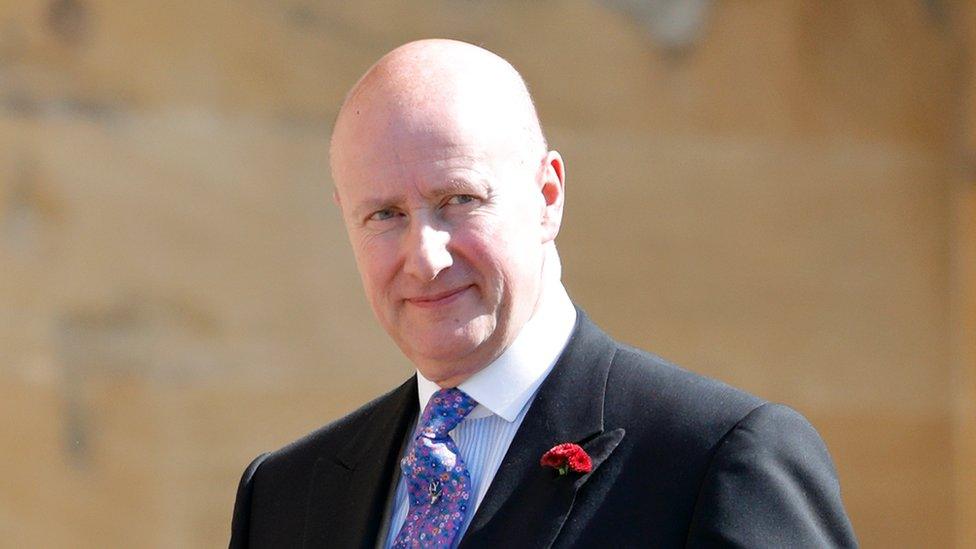Boris Johnson appoints new ministerial standards adviser amid Downing St flat row
- Published

Lord Geidt is to examine the Downing Street flat controversy
Boris Johnson has appointed the former private secretary to the Queen, Lord Geidt, as his new independent adviser on ministers' interests.
The post has been vacant since Sir Alex Allan resigned in November, after the PM overruled him over a report into alleged bullying by Priti Patel.
Lord Geidt's first job will be to look into the controversy over renovations at the PM's Downing Street flat.
But the PM does not have to abide by any of his findings, No 10 said.
The Electoral Commission has launched a probe into how an upgrade to the apartment the PM shares with his fiancee Carrie Symonds was paid for.
Donations
Mr Johnson says he paid for the renovations, but it is not clear how the initial bill was paid, and if it was covered by a donor or the Conservative party itself.
The Electoral Commission says it is "satisfied that there are reasonable grounds to suspect that an offence or offences may have occurred".
At prime minister's questions, Mr Johnson repeatedly insisted he had paid for the renovations out of his own pocket.
He added: "Any further declaration that I have to make - if any - I will be advised upon by Lord Geidt."
Lord Geidt is expected to sign off on the publication of the latest register of ministerial interests, which could contain details of any donations to fund the Downing Street flat.
The publication of the register has been delayed until a new standards adviser was in place.
The terms of reference for Lord Geidt's job, which includes advising the PM on the governing ministers' behaviour, have been tightened-up slightly.
'Vexatious complaints'
He will now be able to "confidentially" raise concerns with the prime minister, if he thinks allegations the code has been broken need to be investigated.
But he will not be able to launch investigations himself, as the PM believes that could lead to probes into "trivial or vexatious complaints", his spokesman said.
The spokesman added that the PM will retain the power to decide whether ministers have broken the code, and any appropriate sanctions.
Asked if that meant the prime minister could reject any of Lord Geidt's findings about his own conduct, the spokesman said: "The prime minister will remain the ultimate arbiter of this, yep."
The new terms of reference do not go as far as those suggested by Lord Evans, the chair of the Committee on Standards in Public Life, who has recommended that the advisor should be able to instigate their own investigation.
A former army intelligence officer and diplomat, Lord Geidt was the Queen's private secretary for 10 years. In September 2017, that he had been "ousted in a power struggle" between Buckingham Palace and the Prince of Wales.
He joined the House of Lords as a crossbench peer, with no party affiliation, in 2017. He is also chairman of King's College London and chairman (international relations and corporate responsibility) at investment bank Schroders.
His predecessor as the PM's standards adviser, Sir Alex Allen, had broken the code governing ministers' behaviour.
But the prime minister rejected his findings, saying he did not think Ms Patel was a bully and had "full confidence" in her.